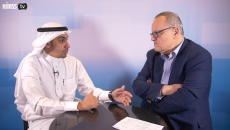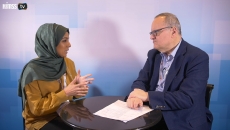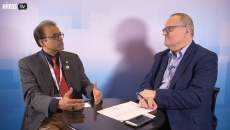Telehealth
Mohannad Jameel M Brembali, general director of Health Supporting Systems at the Ministry of Health KSA, discusses Saudi Arabia's use of telehealth to improve healthcare access to patients in remote areas of the country.
American Telemedicine Association cheers the $8 billion emergency funding legislation, which it says will expand the toolkits of healthcare professionals working to combat the COVID-19 outbreak.
Monitoring coronavirus patients remotely with clinical-grade sensors and collecting data on numerous physiological signals could improve clinical decision-making for providers.
The new device, CarePort, is designed to allow caregivers to easily hook up with patients in their homes. The vendor's CEO eyes enabling senior citizens to stay at home, not the hospital.
Despite its many challenges, telemedicine is helping reduce the burden on secondary care in the Kingdom of Bahrain, says Dr. Khatoon Shubbar, who is with the country's ministry of health.
The healthcare groups, along with eHealth Initiative, Health Innovation Alliance and Personal Connected Health Alliance, want Congress to enable HHS to expand access to virtual care for coronavirus patients.
Prescription drug information and names were exposed, but financials and Social Security numbers were not.
The Houston ENT & Allergy Clinic not only slashed its no-show rates, but also increased its referral conversion by 35%, which translated to an additional $500,000 in annual revenue.
Rajendra Pratap Gupta, board member at the International Society for Telemedicine & eHealth (ISfTeH), says the future will see the rise of fitness wearables with patients managing their own health to a much greater degree.
The EMS system supports real-time data transfer and two-way communication to empower clinical decision making on the move. The AI capabilities will provide “transformative change,” an exec says.



